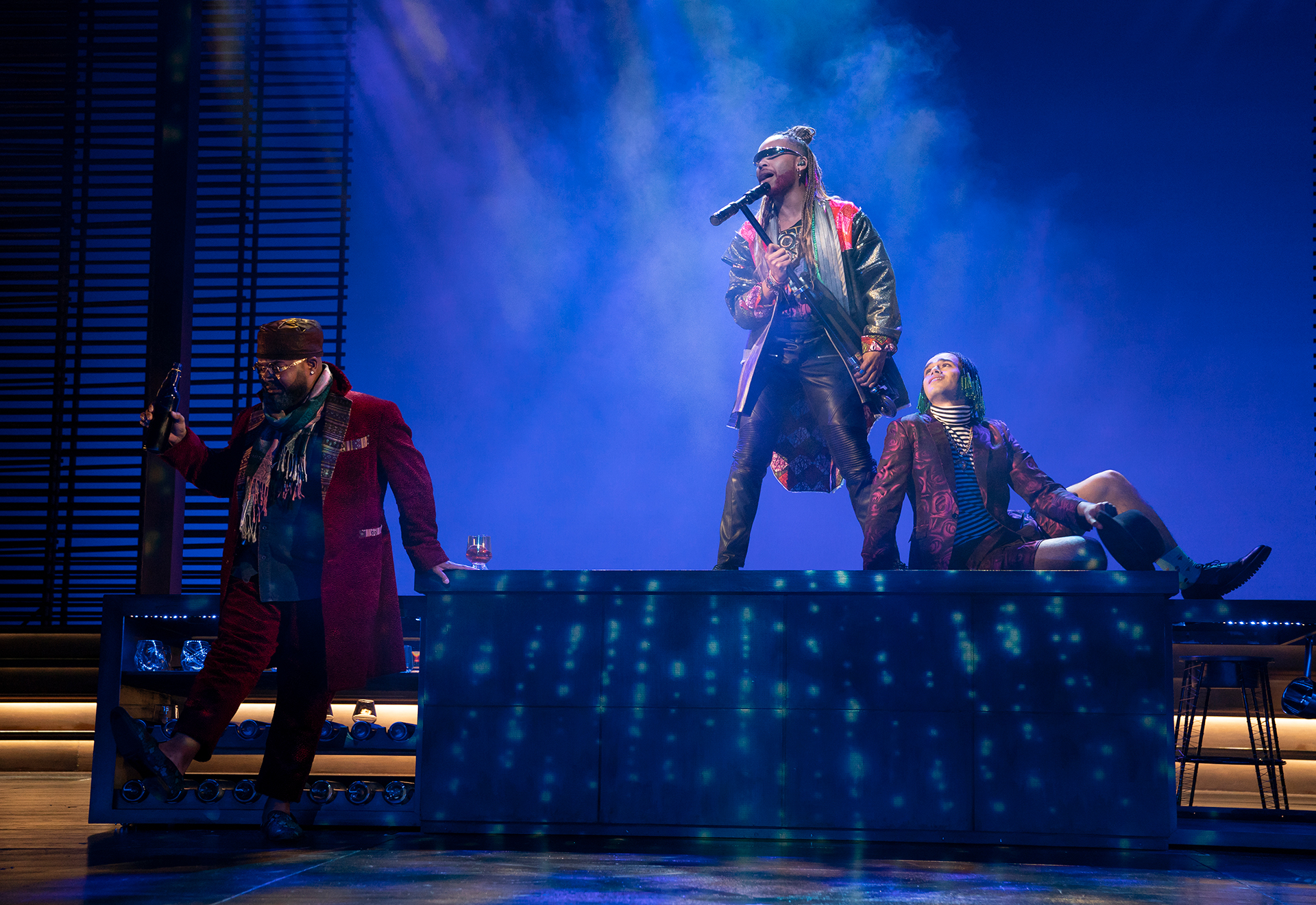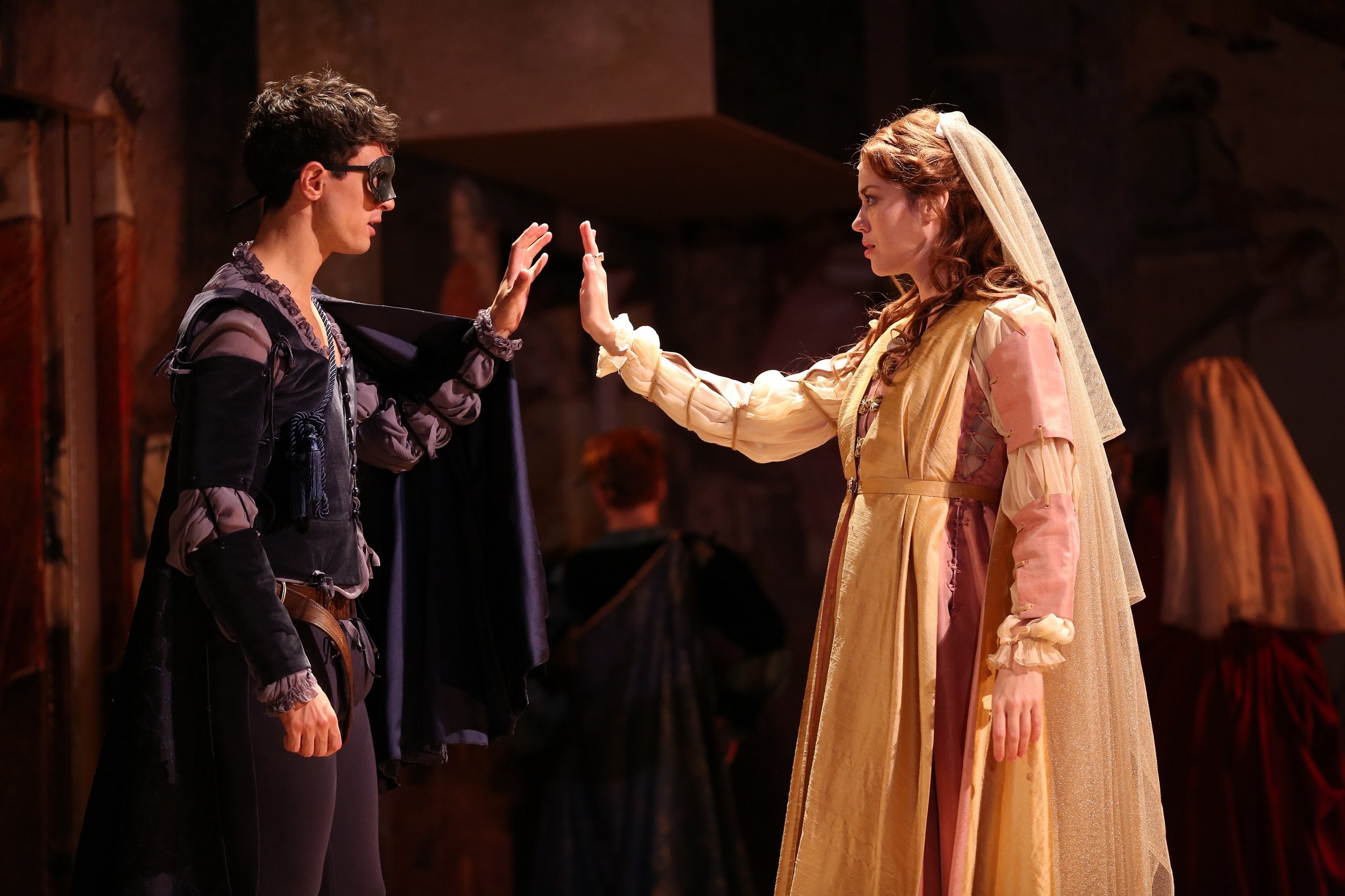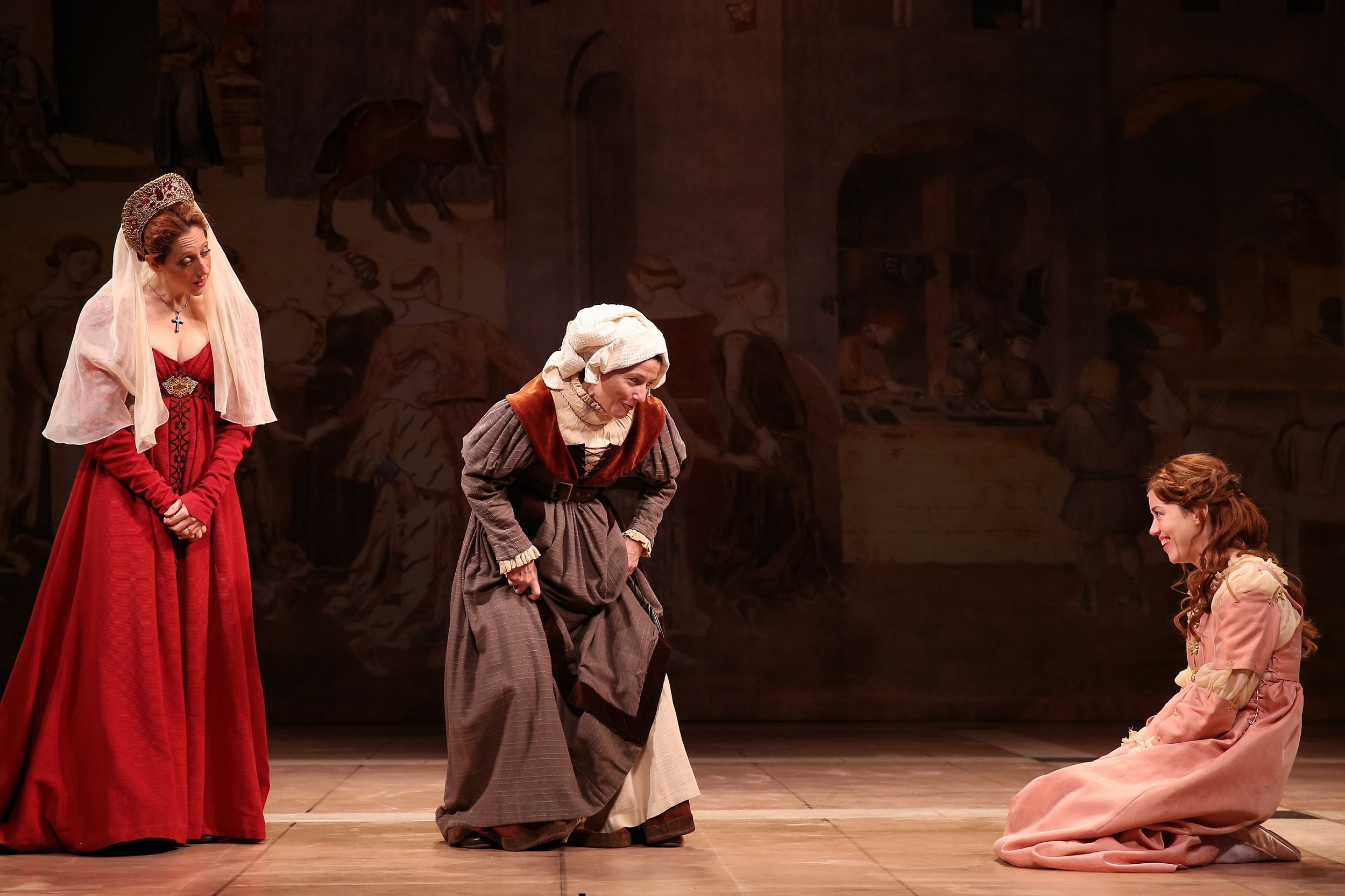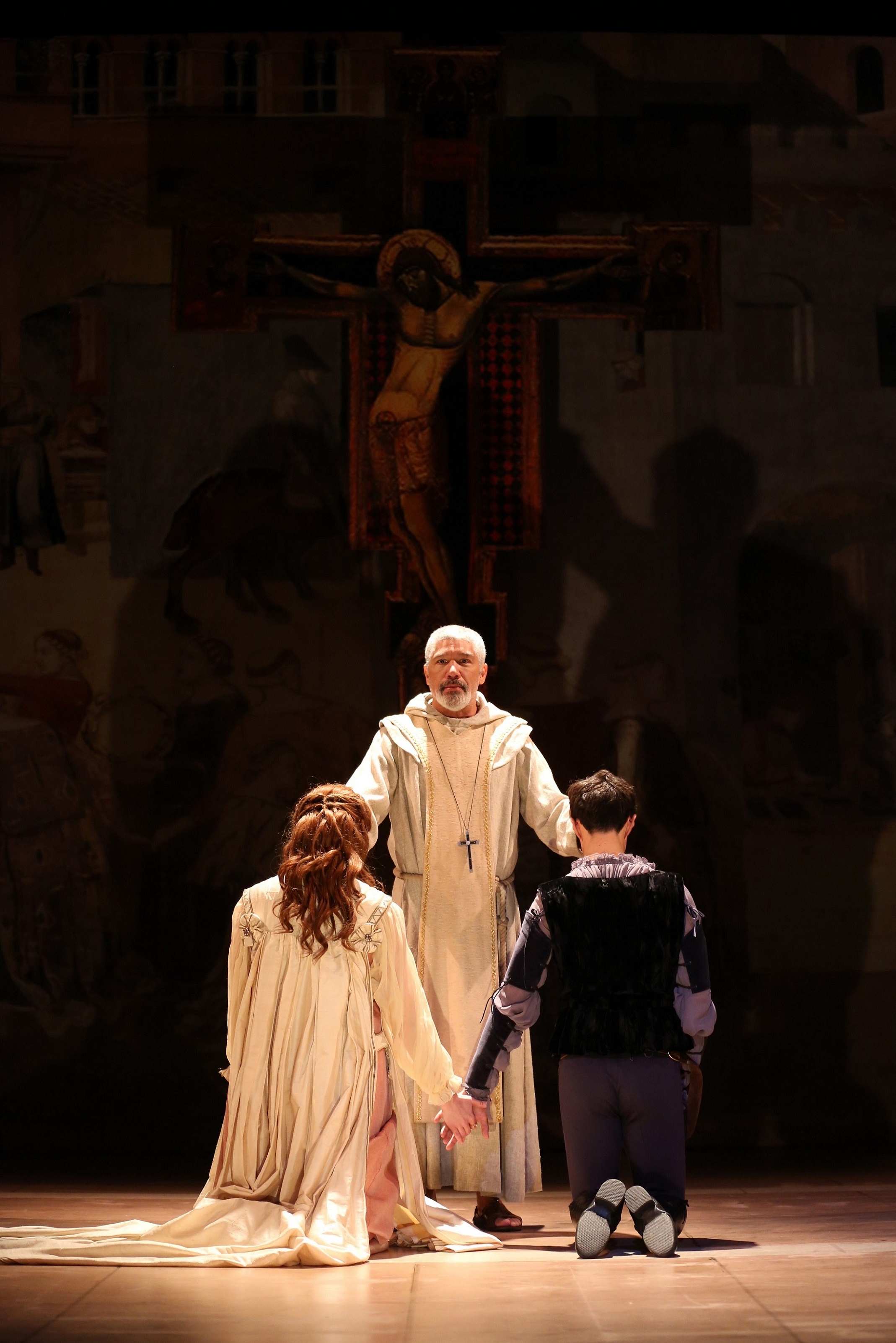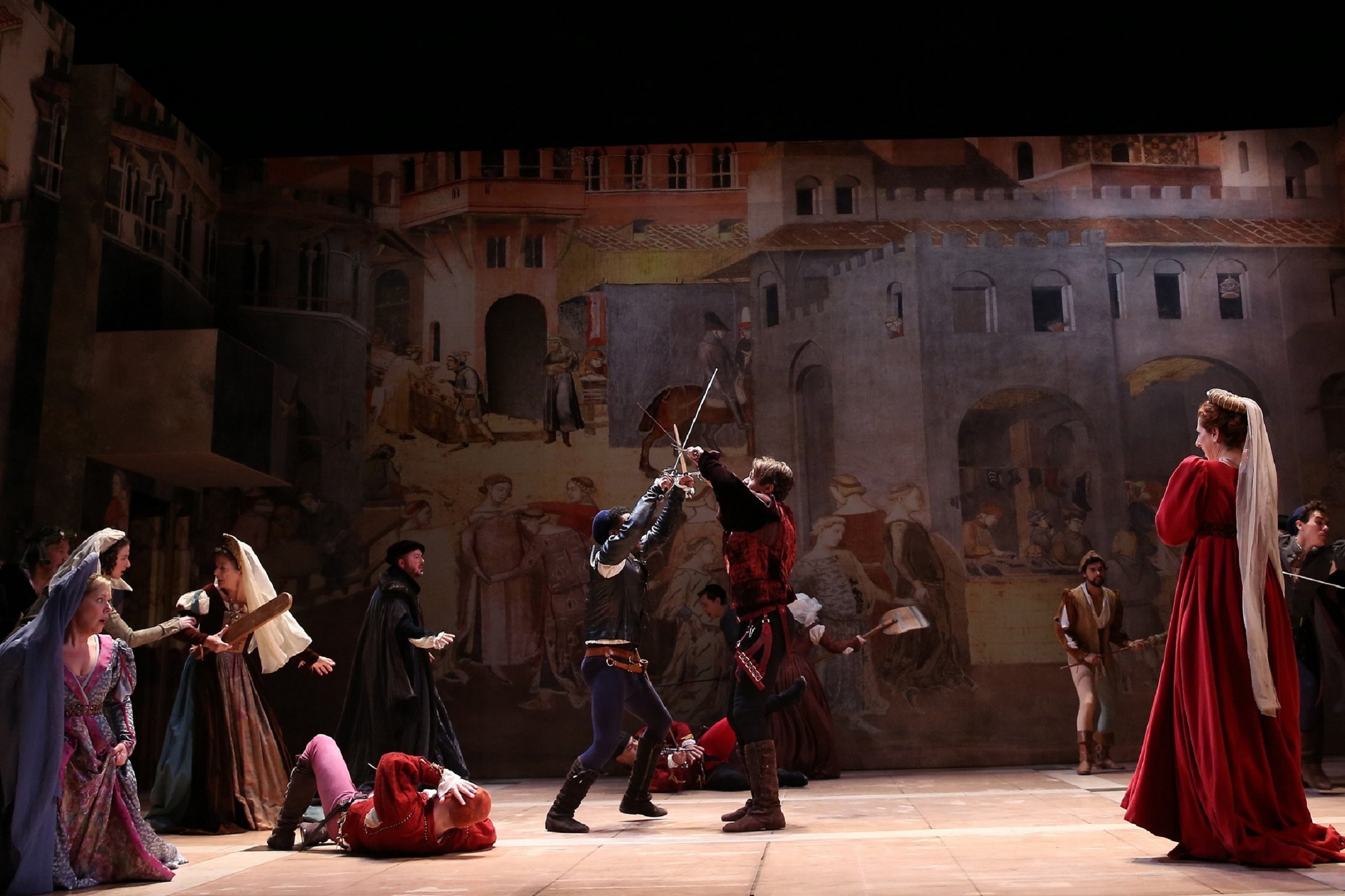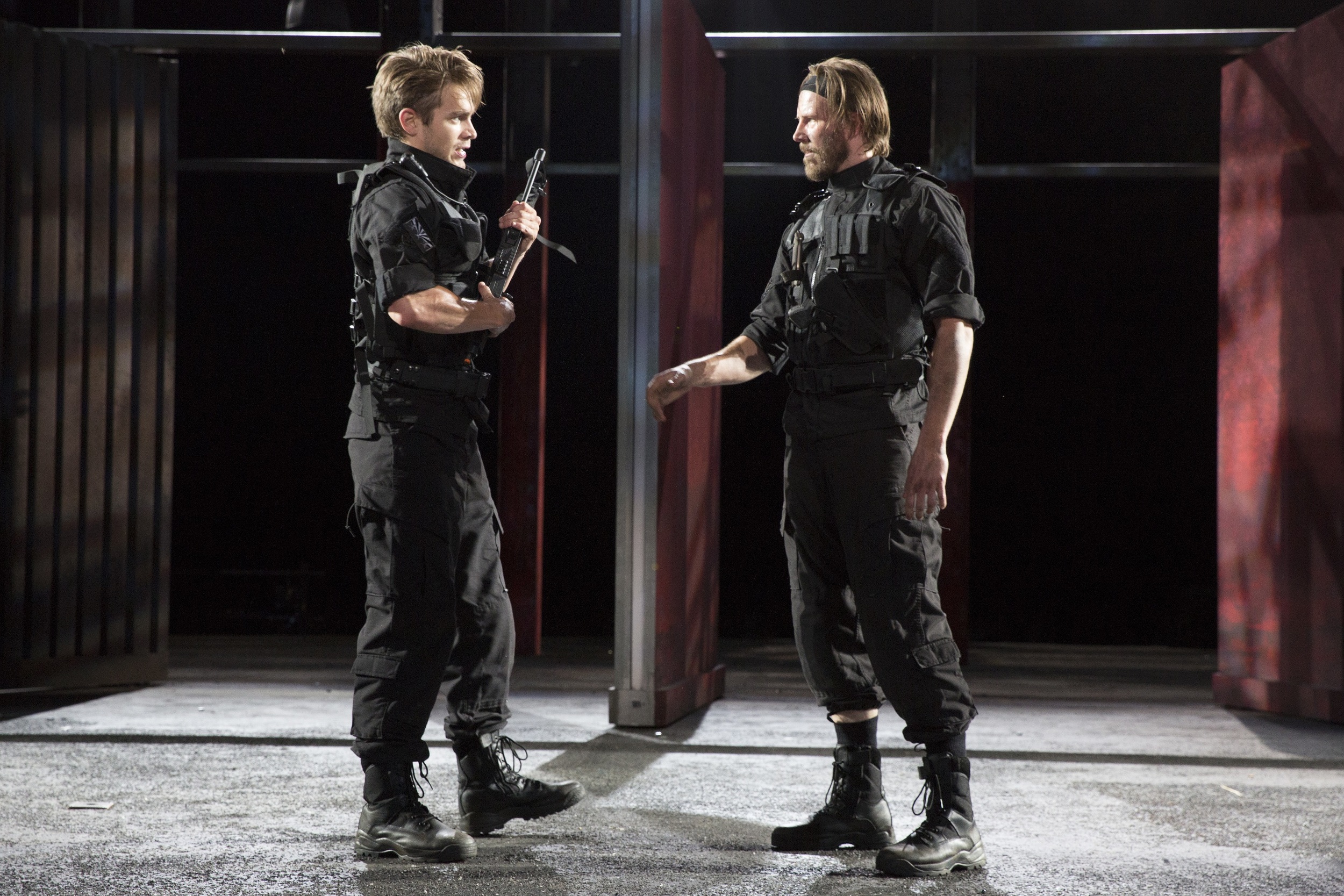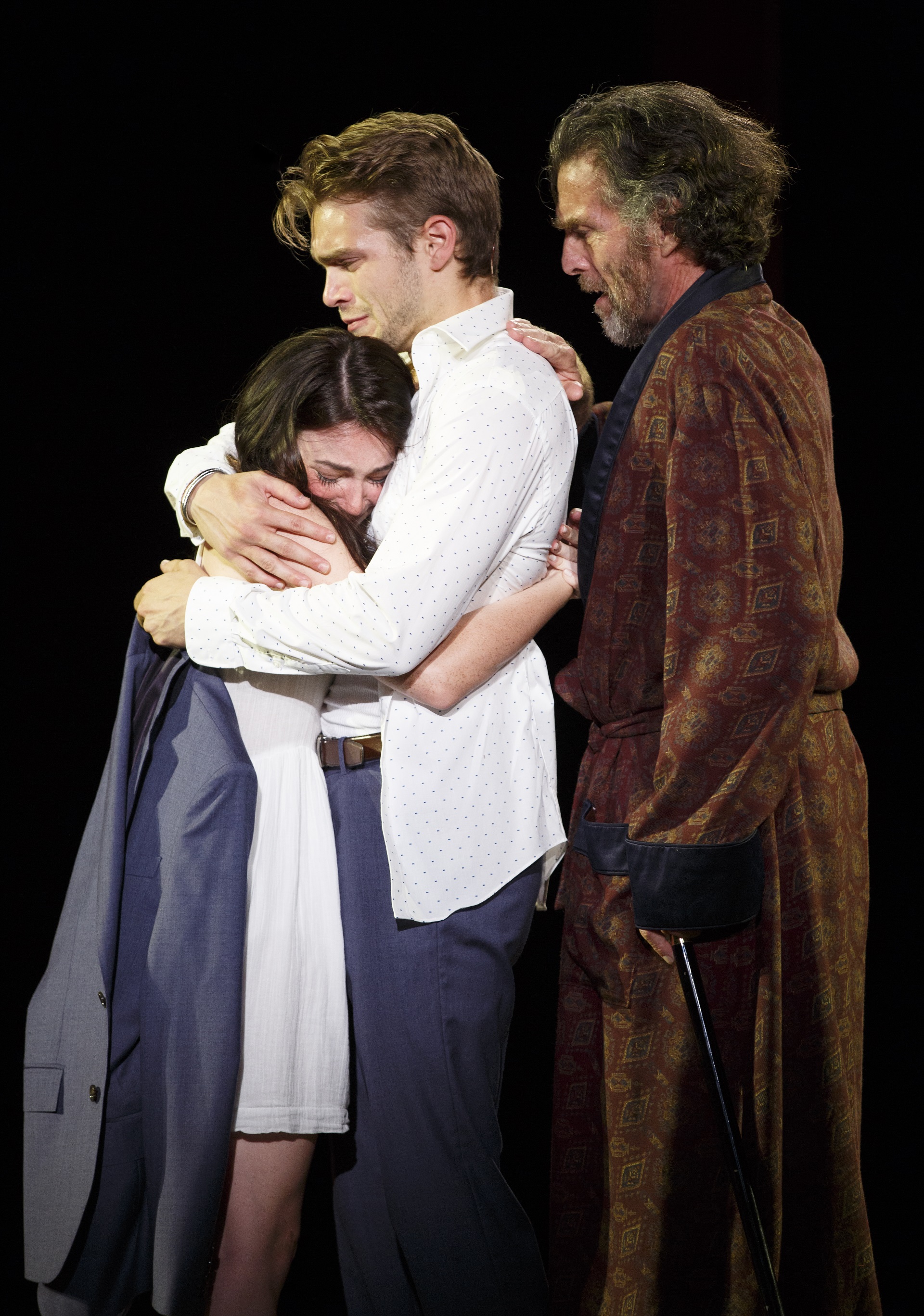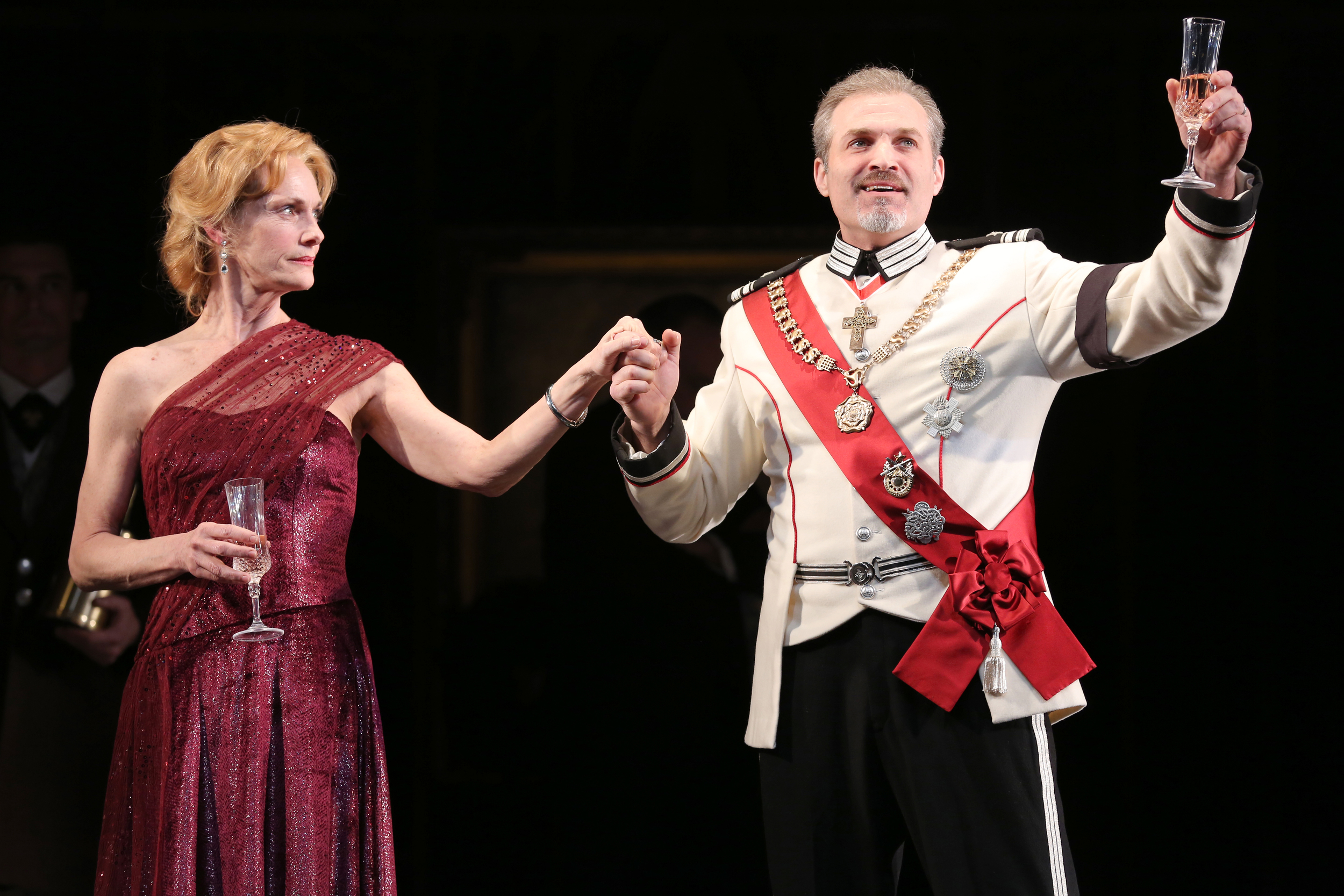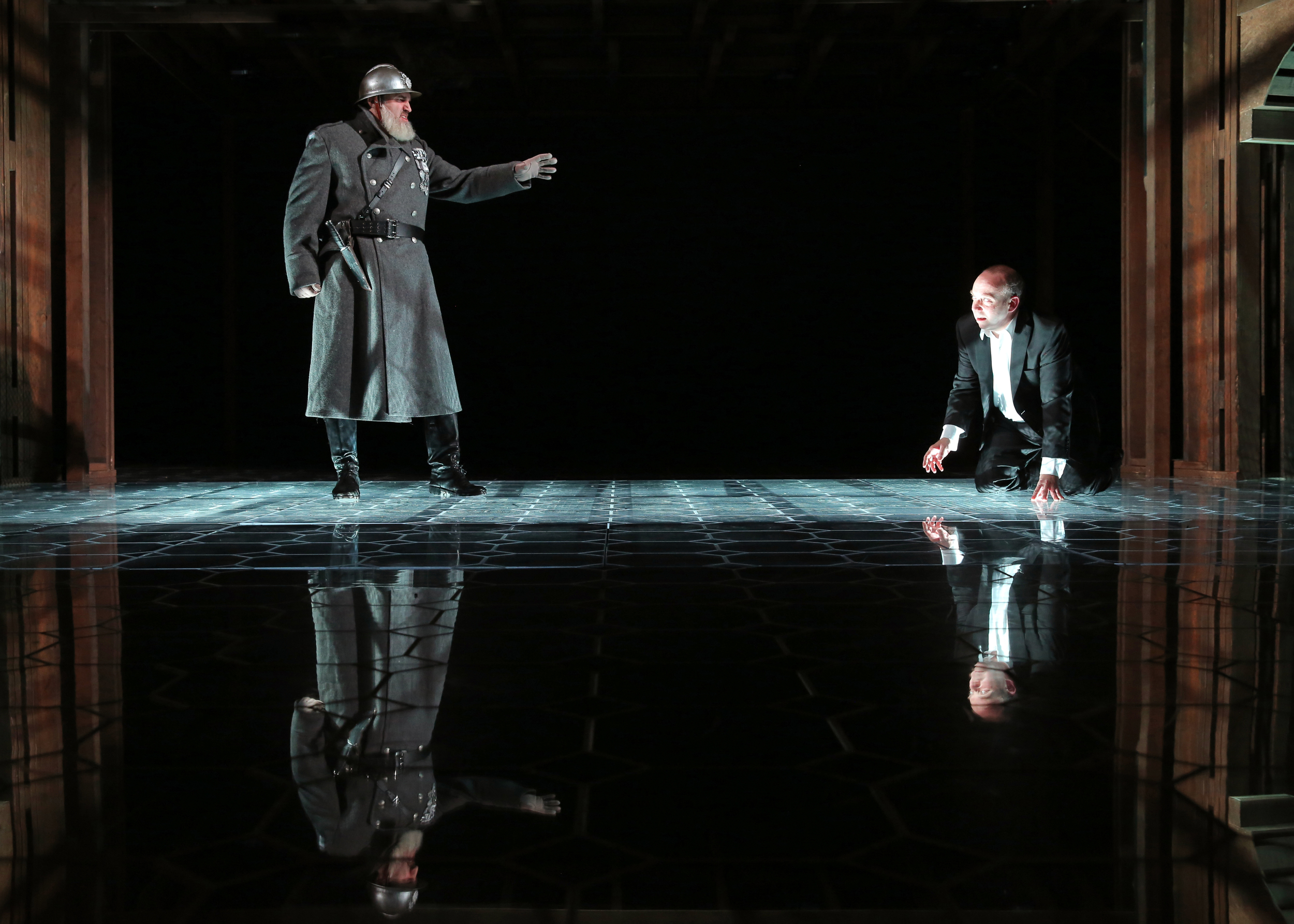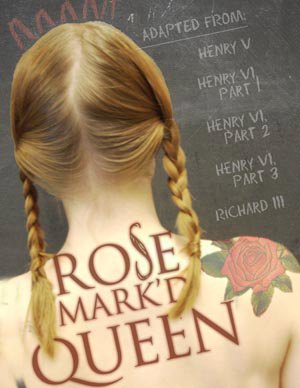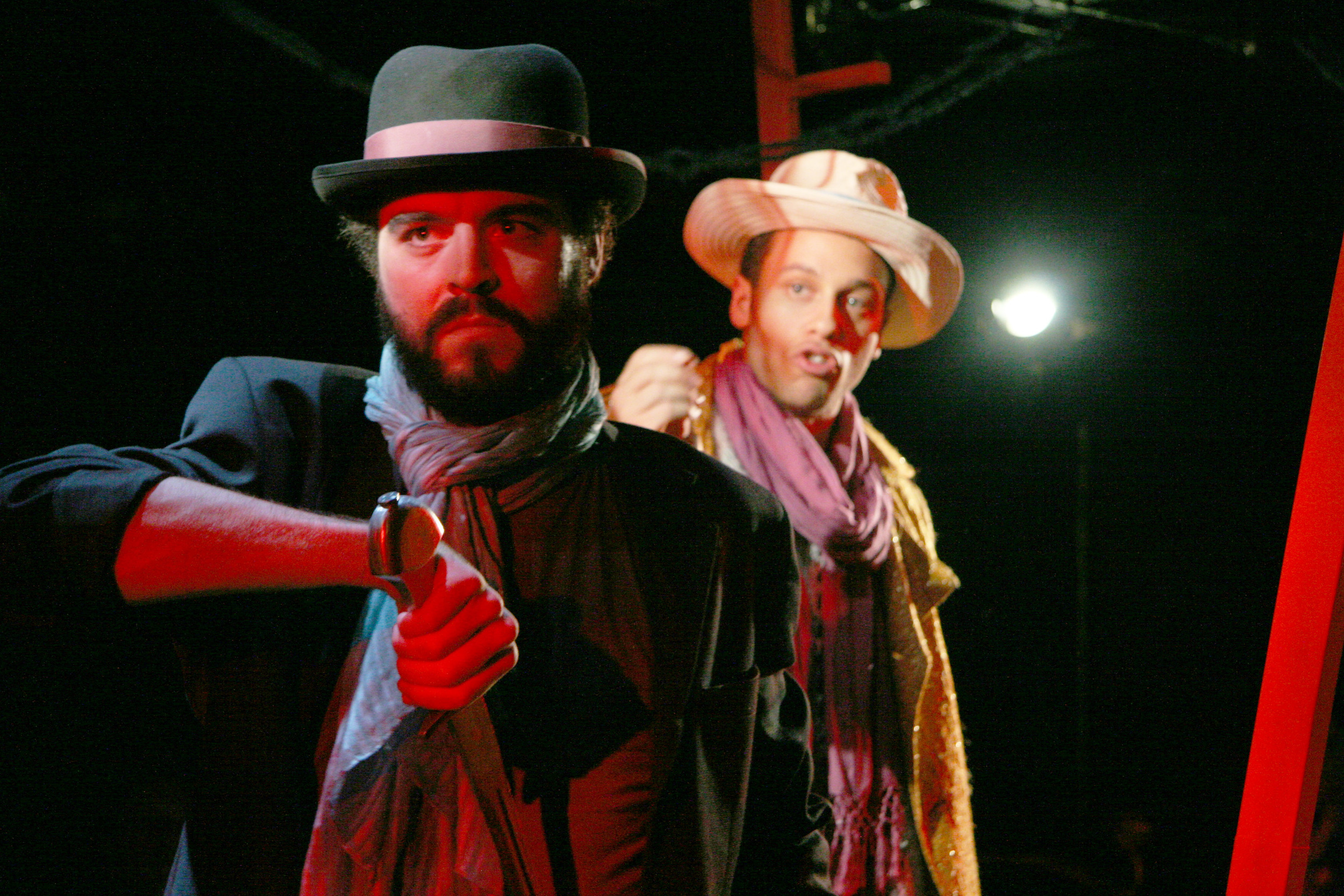Last week, Yale Repertory Theatre opened Carl Cofield’s lively, hilarious, and hi-tech version of Shakespeare’s Twelfth Night which features a very engaging cast. The show is up until April 6th. My review can be found here.
Sir Toby (Chivas Michael), Feste (Erron Crawford), Sir Andrew Aguecheek (Abubakr Ali) in the Yale Repertory Theatre production of Twelfth Night, directed by Carl Cofield
On Monday, Long Wharf Theatre announced three of the four shows of its 2019-20 season, which will be the theater’s 55th. As the season that precedes 2020-21, which will be the inaugural season of recently hired Artistic Director Jacob G. Padrón, next year was billed as transitional, as Padron spoke of Long Wharf’s will to “lead a revolution that will redefine American theater.” Citing managing director Joshua Borenstein’s comment that “all great movements have local beginnings,” Padrón outlined the three characteristics his team looked for in choosing plays: 1.“Undeniable excellence,” 2. Plays that reflect the demographics of the city of New Haven (which is over 42% white, over 35% black, over 27% Hispanic or Latinx, and over 4% Asian); 3. Plays that are “in conversation with the world.” Padrón said, “the world is on fire,” and he sees theater as “a catalyst for social justice.” In terms of emergent strategies, theater can either be advancing and progressing, or regressing into stagnation. Padrón wants Long Wharf to be known for its inclusiveness, as a theater that welcomes everyone, for its artistic innovation, and for its ability to forge connections with community.
First up, from October 9 to November 3, is On the Grounds of Belonging by Ricardo Pérez González, directed by his longtime collaborator David Mendizábal of the New York-based Sol Project, of which Padrón is founder and artistic director, and which partnered with Yale Repertory Theatre on El Huracán, the opening show of the Rep’s current season. The play is a “breathtaking new story of forbidden love in 1950s’s Jim Crow Texas.”
In the Thanksgiving to Christmas slot is “a modern adaptation of a classic work” (that’s not the title, though sounds as if it might be). The play, yet to be announced, will be one “in conversation with new work,” in a production that “breathes new life” into an important, older work of theater.
The new year begins with I Am My Own Wife, by Doug Wright, a Yale grad, with a director still to be determined. The show is a Pulitzer Prize-winning play “about survival and identity” of a transgender person in East Berlin during and after World War II, with a single actor playing over 40 roles. February 5-March 1, 2020.
Mid-March to mid-April is The Chinese Lady by Lloyd Suh, a member of the Ma-Yi Writers Lab. In its third production, the play, “inspired by the true story of America’s first female Chinese immigrant,” will be directed by Ralph B. Peña, a founding member and current artistic director of Ma-Yi Theater. March 18-April 12, 2020.
Work by a female playwright and a female director will by featured in The Great Leap by Lauren Yee, a Yale grad and member of the Ma-Yi Writers Lab, and directed by Madeline Sayet, a CT native noted for her work incorporating the stories and traditions of the Mohegan tribe. The play is “a thrilling underdog story of basketball and foreign relations in 1980s China.” May 6-31, 2020.
This week the Long Wharf’s current season continues with tonight’s press opening of An Iliad, Lisa Peterson and Denis O’Hare’s adaptation of Homer’s Iliad (in Robert Fagles’ translation), directed by Brooklyn-based theater person Whitney White. It’s a two-person play with Rachel Christopher as The Poet and Zdenko Martin as The Muse and runs unti April 14. My review can be found here.
Tomorrow night, Yale Cabaret opens its fourth annual Satellite Festival, which runs Thursday, 3/28, through Saturday, 3/30. My preview can be found here.
Tomorrow night, Thursday, March 28, Collective Consciousness Theatre opens its third and final show of the 2018-19 season, Marco Ramirez’s The Royale, directed by CCT’s Jenny Nelson, a play set in the racially segregated world of boxing in the early 20th century. The show runs 3/28-3/30, 4/4-4/6, and 4/11-4/14. For Brian Slattery’s preview go here.
